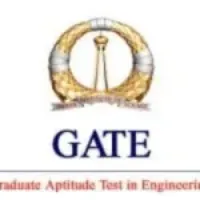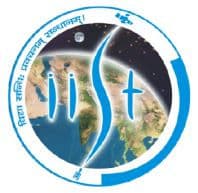Latest Applications Open 2024:
The GATE 2025 syllabus for Polymer Science & Engineering has been officially released by IIT Roorkee. This national-level exam is essential for admission to postgraduate programs in engineering and technology such as ME/M. Tech will feature an updated syllabus for Polymer Science & Engineering.
The GATE 2025 exam is scheduled to be held on the 1st, 2nd, 15th, and 16th of February 2025. The syllabus for Polymer Science & Engineering includes crucial topics such as polymer chemistry, polymer processing, polymer characterization, and the physical and mechanical properties of polymers. This comprehensive syllabus ensures that candidates are well-prepared to address both fundamental and advanced aspects of polymer science in their postgraduate studies.
For complete details about the GATE 2025 syllabus, including the specific topics covered and any updates, candidates should refer to the official guidelines provided by IIT Roorkee. Adequate preparation based on this syllabus is key to performing well in the exam and advancing in the field of Polymer Science & Engineering.
GATE 2025 Polymer Science & Engineering Syllabus – PDF Released
GATE 2025 Polymer Science & Engineering Syllabus has been Released. Click to Download Polymer Science & Engineering PDF Syllabus.
GATE 2025 Polymer Science & Engineering Syllabus
Section 1: Chemistry of high polymers
Monomers, functionality, degree of polymerizations, classification of polymers, glass transition, melting transition, criteria for rubberiness, polymerization methods: addition and condensation; their kinetics, metallocene polymers and other newer techniques of polymerization, copolymerization, monomer reactivity ratios and its significance, kinetics, different copolymers, random, alternating, azeotropic copolymerization, block and graft copolymers, techniques for copolymerization- bulk, solution, suspension, emulsion.
Section 2: Polymer Characterization
Solubility and swelling, concept of average molecular weight, determination of number average, weight average, viscosity average and Z-average molecular weights, polymer crystallinity, analysis of polymers using IR, XRD, thermal (DSC, DMTA, TGA), microscopic (optical and electronic) techniques.
Section 3: Synthesis and Properties
Commodity and general purpose thermoplastics: PE, PP, PS, PVC, Polyesters, Acrylic, PU polymers. Engineering Plastics: Nylon, PC, PBT, PSU, PPO, ABS, Fluoropolymers Thermosetting polymers: PF, MF, UF, Epoxy, Unsaturated polyester, Alkyds. Natural and synthetic rubbers: Recovery of NR hydrocarbon from latex, SBR, Nitrile, CR, CSM, EPDM, IIR, BR, Silicone, TPE.
Section 4: Polymer blends and composites
Difference between blends and composites, their significance, choice of polymers for blending, blend miscibility-miscible and immiscible blends, thermodynamics, phase morphology, polymer alloys, polymer eutectics, plastic-plastic, rubber-plastic and rubber-rubber blends, FRP, particulate, long and short fibre-reinforced composites.
Section 5: Polymer Technology
Polymer compounding needs and significance, different compounding ingredients for rubber and plastics, crosslinking and vulcanization, and vulcanization kinetics.
Section 6: Polymer Rheology
The flow of Newtonian and non-Newtonian fluids, different flow equations, dependence of shear modulus on temperature, molecular/segmental deformations at different zones and transitions. Measurements of rheological parameters by capillary rotating, parallel plate, cone-plate rheometer. Viscoelasticity-creep and stress relaxations, mechanical models, control of rheological characteristics through compounding, rubber curing in parallel plate viscometer, ODR, and MDR.
Section 7: Polymer Processing
Compression moulding, transfer moulding, injection moulding, blow molding, reaction injection molding, extrusion, pultrusion, calendaring, rotational molding, thermoforming, rubber processing in the two-roll mill, internal mixer.
Mechanical-static and dynamic tensile, flexural, compressive, abrasion, endurance, fatigue, hardness, tear, resilience, impact, toughness. Conductivity-thermal and electrical, dielectric constant, dissipation factor, power factor, electric resistance, surface resistivity, volume resistivity, swelling, ageing resistance, environmental stress cracking resistance.
Other GATE-Related Syllabus Links
| Syllabus | Code | Syllabus | Code |
| Atmospheric and Oceanic Sciences | (XE-H) | Fluid Mechanics | (XE-B) |
| Material Science | (XE-C) | Solid Mechanics | (XE-D) |
| Thermodynamics | (XE-E) | Engineering Mathematics | (XE-A) |
| Food Technology | (XE-G) | – | – |
If you have any queries regarding the GATE 2025 Polymer Science & Engineering Syllabus, you can ask your query and leave comments below.

As a dedicated Biology Science graduate, I’m passionate about sharing the latest updates in national and state entrance exams through my blog. I aim to keep aspiring students informed about exam trends, important dates, and changes in syllabi. With a keen interest in education, I strive to offer valuable insights for students navigating the competitive landscape of entrance examinations and admission tests. Stay updated with me.


